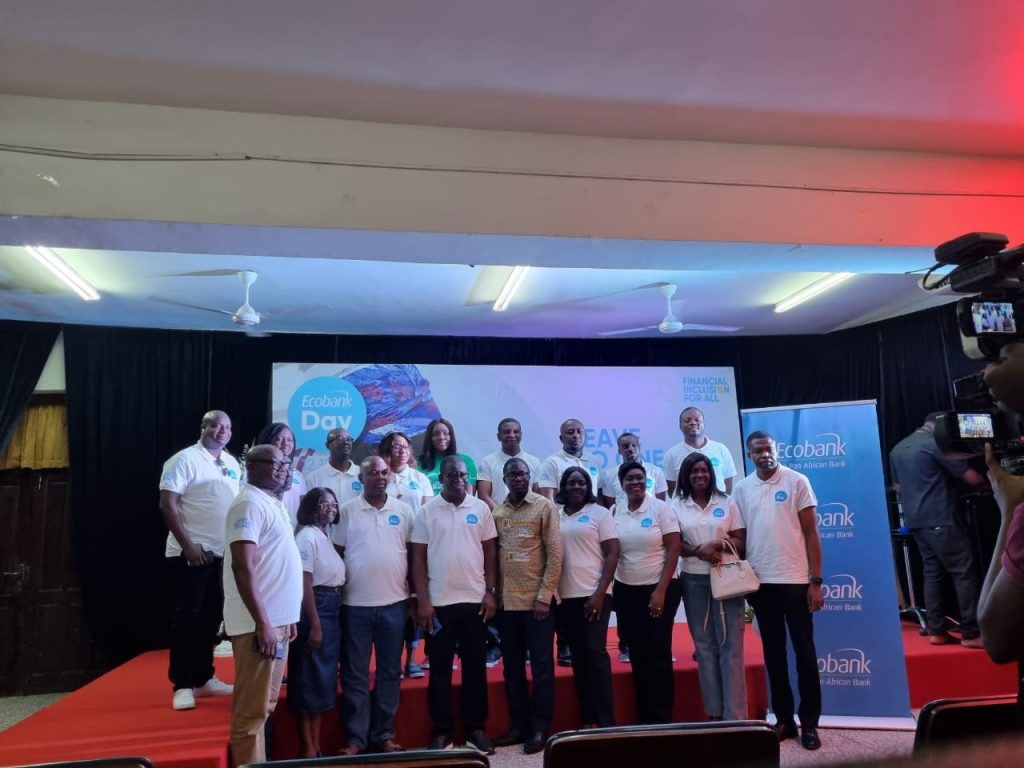Accra, Nov. 13, GNA-Women-led Small and Medium-scale Enterprises (SMEs) have received knowledge and skills on financial tools from Ecobank Ghana to address essential everyday money decisions, such as bookkeeping, basic accounting, budgeting, savings and investments.
This training was organised to mark Ecobank Day, a flagship annual Corporate Social Responsibility programme aimed at giving back to the communities in which the bank lives, works and serves.
Addressing the gathering at the training centre at UPSA in Accra, the Managing Director of Ecobank Ghana, Mr Dan Sackey, said the focus of this year’s Ecobank Day was increasing financial literacy and financial inclusion, particularly for women and youth in marginalised communities.
“We recognise that financial literacy and financial inclusion are life-changing matters, and that is why we treat them very seriously. We are determined to help raise financial literacy, which in turn will drive financial inclusion in our local communities.”
“Ecobank Ghana is committed to playing an important role in our communities as a meaningful contribution to the development of the African continent, in line with our overall corporate vision”, he said.
Financial literacy, Mr Dan Sackey explained was the ability to use one’s knowledge and skills acquired through education and training to effectively manage financial resources ideally for a lifetime of financial well-being.
He said financial inclusion meant having access to useful and affordable financial products and services to meet one’s needs- payments, savings, personal and small business loans, and insurance.
He added that financial literacy and financial inclusion were key enablers in reducing poverty and boosting prosperity.
However, 68 per cent of sub-Saharan Africans are not financially literate and 62 per cent of the unbanked lived in rural areas with 40 per cent of them young adults aged 15 to 24.
Also, 74 per cent of the unbanked had, at most, primary education.
He mentioned that as part of the bank’s contributions to reducing these statistics, the Ecobank family in Ghana held four simultaneous events in Accra, Kumasi, Takoradi and Tamale to equip people in the SME sector with knowledge and skills to manage their finances effectively.
He disclosed that there was one slated to take place in Manya Krobo on a later date due to unforeseen circumstances.

Mr Sackey said the training was another avenue to provide the women and youth with easy access to opening accounts remotely as well as receiving and making payments and sending funds to loved ones without visiting the branch.
He said Ecobank aimed to help people improve their finances, record keeping, and ability to successfully start and run businesses and improve their quality of life.
Ecobank Ghana presented 50 sewing machines to vulnerable ones identified in each of the four locations with the expectation that the beneficiaries with the knowledge gained from the training would put the machines to commercial use to be able to generate incomes to improve the lives of their families to gain financial independence.
Participants in Accra were drawn from diverse backgrounds including members of the various Seamstresses associations, operating from deprived and marginalised communities.
He cautioned the customers of Ecobank to remain vigilant and not fall prey to the activities of fraudsters who were currently on the loose and defrauding unsuspecting customers, especially as the Christmas and New Year festive season drew near.
Executive Director and Head of Consumer Banking for Ecobank Ghana, Dr Edward Nartey Botchway disclosed that the training took place simultaneously in all the 33 African countries the bank operates with the same theme, “Financial Inclusion For All; Leave No One Behind” across the continent.
Dr Botchway said it was not a one-off event but rather Ecobank would continue to engage the people to put to good use the knowledge and skills acquired from the training to better their lots in the Small and Medium-scale Enterprise sector.
“If you are going to know the performance of your business, it is not possible to do that without proper recording and tracking what you are doing. That is the reason why we think this training is keen”, he said.
GNA